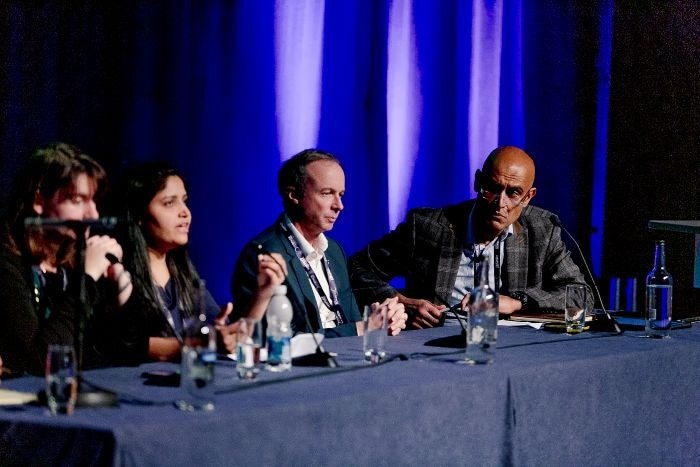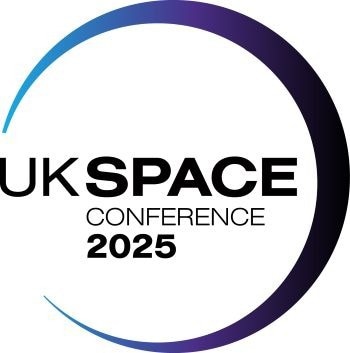In July, business leader, policymakers, academics, and innovators across aerospace, engineering, manufacturing and technology will gather in Manchester for UK Space Conference.

Image Credit: UK Space Conference
Rarely has there been a more opportune moment to gather around a shared theme: Space for Growth.
Space is no longer an ambition, it’s a reality. From precision agriculture and climate science to autonomous transport and secure communications, space capabilities underpin the systems we rely on every day.
But the value it delivers is still largely invisible to the public and, critically, to potential collaborators in adjacent sectors. If space is to unlock its full potential for UK growth, the story must be told more clearly, more consistently, and in the language of the industries it aims to partner with.
"We are already living in a space age,” says Prof Anu Ojha, Director of Championing Space at the UK Space Agency. “More than £350 billion of annual UK economic activity, 16% of our total GDP, depends on services from space such as position, navigation, timing and communications capabilities supporting our financial, energy distribution and commercial sectors.
This summer, all eyes will turn to the Shetland Islands, where SaxaVord Spaceport is preparing to host the UK’s first-ever vertical space launch.

Image Credit: UK Space Conference
It’s an engineering milestone that will offer us a moment of national visibility - a chance to show how space is no longer a niche pursuit, but a powerful enabler of economic growth, sovereign capability, and technological leadership.
It’s the moment to clearly articulate the many ways space delivers real value to the UK economy. How space data reduces insurance risk, for instance, or how GNSS enables construction logistics, or how Earth observation improves energy resilience.
That Orbex rocket carries the potential to reframe how people and businesses across the UK see the space sector. Not just as exploration, but as infrastructure - essential, enabling, everyday. Not science fiction, but a domestic economic engine.
This is the story of our future, and we all own a share - every sector that relies on space technology, whether they know it or not, for communication, PNT, or orbital data - every manufacturer in the aerospace supply chain.
Because if space is to power economic growth like we know it can, the sector must become more integrated with UK manufacturing, energy, infrastructure, and innovation ecosystems. It must become more legible, showing where commercial opportunity meets national capability, inviting new suppliers, engineers, academics and investors to see where they fit – this our aim in Manchester on 16 and 17 July at UK Space Conference.
The UK space sector, like many others, is facing a shortage of talent in the technical, commercial, and operational areas needed to sustain its trajectory. Retention issues persist, particularly among women and those from underrepresented backgrounds. Too often, the talent pipeline narrows before it even begins.
The challenge is about rethinking how we build a workforce that reflects the breadth of what space now encompasses - learning from other industries like engineering, energy and digital, where meaningful progress has been achieved through apprenticeships, mid-career transitions, and inclusive training programs.
It also means establishing clearer connections between space careers and the issues people care about, like climate, health, connectivity, and security. If space is going to support the nation, the nation needs to see itself in the people building, launching, designing and leading the sector.
That’s why this summer matters. It’s an opportunity to reframe the space sector as a platform for national progress. A time to connect its capabilities to the priorities of the wider economy. When the rocket lifts off, it won’t just mark the UK’s entry into global vertical launch - it will spotlight a sector ready to deliver real-world value.
That’s why UK Space Conference 2025 will explicitly focus on the solutions we need: Building the skills pipeline, improving public understanding, strengthening supply chains, and creating policy and funding environments that unlock long-term growth.
UK Space Agency’s Prof Anu Ojha: “With strengths in science, data, manufacturing and regulation, the UK can attract increasing levels of investment and play a leading role in the global space sector. The challenge is to connect the opportunity to regions, businesses and people who don’t see themselves as part of this narrative.
“That’s how we’ll build a space economy that truly works for the whole nation,” he says. “Growth doesn’t start in space; it comes from the connections we build at events like the UK Space Conference.”
On 16 and 17 July, UK Space Conference 2025 in Manchester, you are invited to join the discussion. Help us surface what’s working, challenge what’s not, and be accountable to the next steps we must take - on investment, infrastructure, inclusion, and innovation.
We’re all part of the UK space mission, whether we know it or not. And the future isn’t about rockets and satellites. It’s about people. Connection. Collaboration.
See you in Manchester: www.SpaceConference.co.uk

This information has been sourced, reviewed and adapted from materials provided by UK Space Conference.
For more information on this source, please visit UK Space Conference.